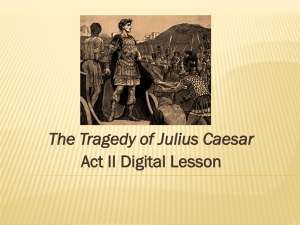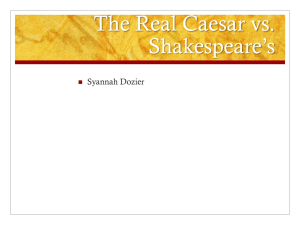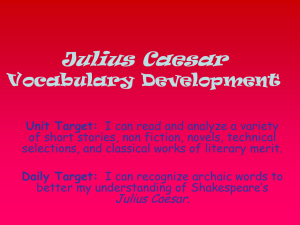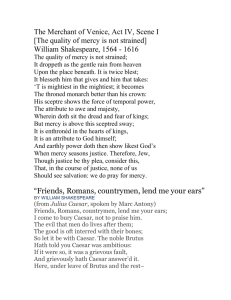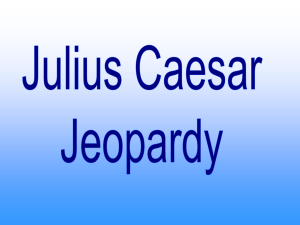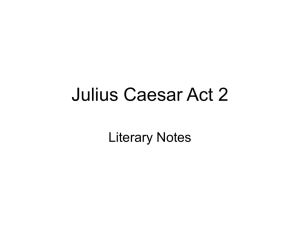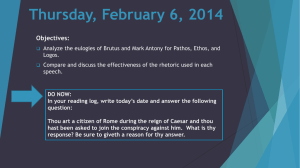Julius Caesar Essay
advertisement
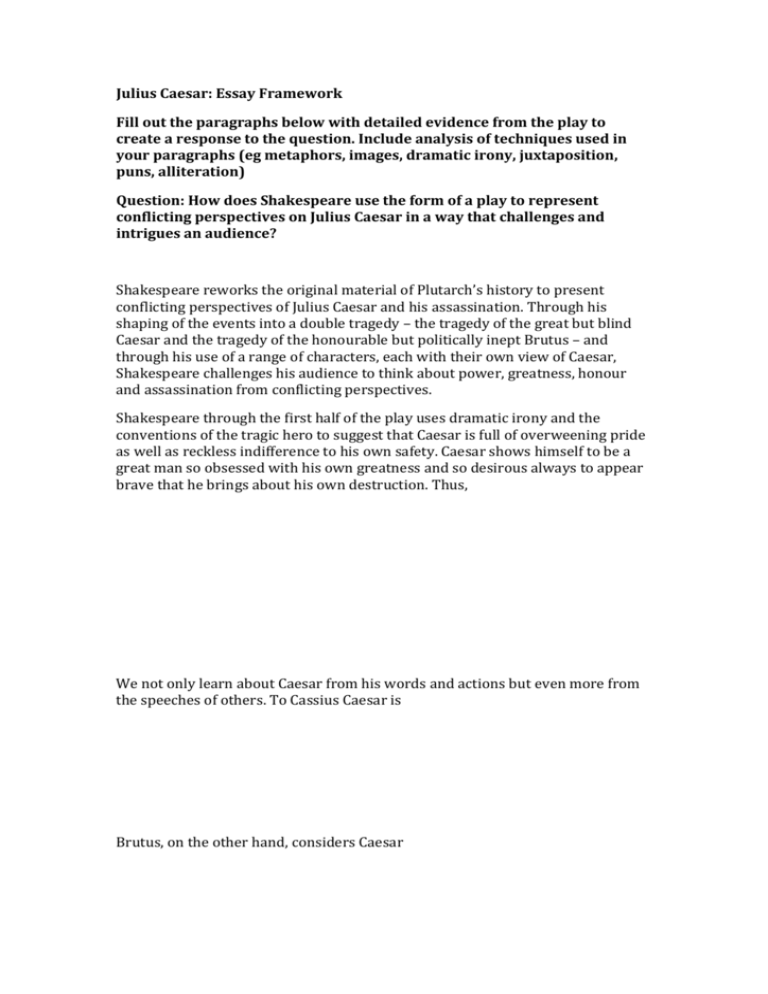
Julius Caesar: Essay Framework Fill out the paragraphs below with detailed evidence from the play to create a response to the question. Include analysis of techniques used in your paragraphs (eg metaphors, images, dramatic irony, juxtaposition, puns, alliteration) Question: How does Shakespeare use the form of a play to represent conflicting perspectives on Julius Caesar in a way that challenges and intrigues an audience? Shakespeare reworks the original material of Plutarch’s history to present conflicting perspectives of Julius Caesar and his assassination. Through his shaping of the events into a double tragedy – the tragedy of the great but blind Caesar and the tragedy of the honourable but politically inept Brutus – and through his use of a range of characters, each with their own view of Caesar, Shakespeare challenges his audience to think about power, greatness, honour and assassination from conflicting perspectives. Shakespeare through the first half of the play uses dramatic irony and the conventions of the tragic hero to suggest that Caesar is full of overweening pride as well as reckless indifference to his own safety. Caesar shows himself to be a great man so obsessed with his own greatness and so desirous always to appear brave that he brings about his own destruction. Thus, We not only learn about Caesar from his words and actions but even more from the speeches of others. To Cassius Caesar is Brutus, on the other hand, considers Caesar A conflicting perspective is offered by Mark Antony. To him Caesar is Significantly Mark Antony’s funeral speech, addressed to the audience in the theatre as much as to the Roman crowd, sways us towards a positive view of Caesar, despite the clear sincerity of Brutus and the ample evidence from Caesar’s own speech of blind monomania. Antony’s comparison of Caesar to a “deer strucken by princes” (in a speech over the dead body of Caesar) evokes the image of an innocent murdered by envious rich aristocrats. Rapidly we forget the vain boasts of Caesar and shift to seeing him as the noble hero wrongly murdered. By continuing the play beyond the murder of Caesar and ending it with the death of Brutus and the defeat of the conspirators, Shakespeare adds a further perspective on Caesar. A bloody civil war in which thousands die, just as Antony predicted, is the consequence of the murder and through his portrayal of Brutus Shakespeare suggests that killing Caesar was indeed indefensible as the impractical political-disaster Brutus offers no real alternative to Caesar. Our view of Caesar shifts several times in the play. At the start we see the attitude of the common people. Later we see the estimate of Brutus. In Antony’s soliloquy over the freshly murdered body of Caesar we are told In the funeral speech we gain more evidence of Caesar’s greatness and humanity, as well as his love for the common people. Cassius’ obvious envy and his obsession with his own wounded pride make us inclined to believe that Caesar does not deserve the death that awaits him. Overall we are carried along by the pace of the action and it is hard to see Shakespeare as having a coherent view of Caesar. Perhaps we are meant to be left only with conflicting perspectives. What compels us is the conflicting mix of impressions: Caesar is a great man flawed by his excessive need to be seen as brave; Caesar is the champion of the ordinary people done to death by envious conspirators; Caesar is the god-like Roman leader whose presence after death leads Rome on to the Empire under Augustus. Likewise with his murder we are left with ambiguities. Caesar’s death is a necessary sacrifice to try to preserve the liberties of Rome and its dignity as a democracy. Caesar’s death is a tragic, misguided act bringing civil war and mass slaughter that will only end when another Caesar, Octavius Augustus, becomes Emperor. Shakespeare shapes his historical material into a dramatically effective narrative but not into a politically, or historically, or even morally consistent text.


